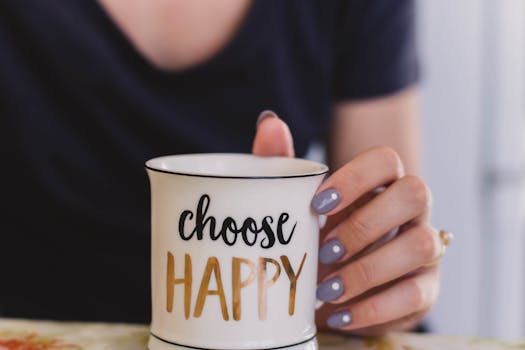Coffee is one of the most popular beverages worldwide, beloved for its rich flavor and invigorating effects. However, there exists an ongoing debate about the impact of coffee and caffeine on mental health, particularly regarding anxiety. In this article, we’ll delve deeply into how coffee may influence anxiety levels, exploring scientific research and personal experiences to better understand this complex relationship.
The Role of Caffeine in the Body
Caffeine, a primary component of coffee, is a central nervous system stimulant. It works by blocking adenosine receptors, which can increase the levels of certain neurotransmitters such as dopamine and norepinephrine. This process often leads to enhanced alertness and improved mood. However, interestingly, these same properties can also provoke feelings of anxiety in susceptible individuals.
How Coffee Affects Anxiety Levels
The relationship between coffee consumption and anxiety is multifaceted. For some, a moderate intake of coffee can provide a boost in mood and energy without adverse effects. For others, particularly those predisposed to anxiety disorders, even a small amount of caffeine can exacerbate symptoms. Here are some key factors that influence how coffee affects anxiety:
- Individual Sensitivity to Caffeine: Each person’s threshold for caffeine varies. Some people metabolize caffeine quickly, while others may experience heightened sensitivity, leading to increased anxiety.
- Quantity of Coffee: Moderate coffee consumption may lead to positive effects, while excessive intake can result in jitteriness and panic-like symptoms.
- Timing of Consumption: Drinking coffee late in the day can interfere with sleep, leading to increased anxiety the following day due to fatigue and irritability.
Scientific Studies on Caffeine and Anxiety
Numerous studies have investigated the effects of caffeine on anxiety. Research showcases a spectrum of responses, highlighting that while some individuals may experience reduced anxiety and improved mood, others may face heightened feelings of nervousness.
For instance, a study published in the Journal of Psychopharmacology found that caffeine intake significantly increased anxiety levels in participants with generalized anxiety disorder. Conversely, a separate study indicated that caffeine could have mood-enhancing effects, especially in those with low baseline anxiety levels.
Why Some People Experience Increased Anxiety from Coffee
Understanding why coffee can increase anxiety for some individuals involves considering the biological and psychological factors at play:
- Nervous System Reactivity: Individuals with a predisposed sensitivity to adrenaline may find that caffeine triggers a fight-or-flight response, leading to feelings of anxiety.
- Existing Mental Health Conditions: Those already experiencing anxiety disorders may find caffeine exacerbates their symptoms, making it essential to evaluate coffee intake carefully.
- Stress Response: Caffeine can heighten the body’s stress response by increasing levels of cortisol, a hormone associated with stress.
Balancing Coffee Intake and Anxiety
If you’re a coffee lover but also battle anxiety, here are some strategies to find a healthy balance:
- Monitor Your Intake: Pay attention to how much coffee you’re consuming each day and track any changes in your anxiety levels.
- Limit Consumption: Consider reducing your coffee intake, especially if you notice a pattern linking your anxiety to caffeine consumption.
- Opt for Decaffeinated: Switch to decaf or herbal alternatives that provide the comfort of a warm beverage without the jitters associated with caffeine.
Alternatives to Coffee for Reducing Anxiety
If you find that coffee worsens your anxiety or you simply want to explore alternative beverages, consider the following options:
- Herbal Teas: Chamomile, peppermint, and lavender tea can provide calming effects and are caffeine-free.
- Golden Milk: Made with turmeric and warm milk (dairy or plant-based), this comforting drink can help reduce inflammation and promote relaxation.
- Hydration: Drinking plenty of water can help maintain overall wellness, which might ease feelings of anxiety.
The Mind-Body Connection in Caffeine Consumption
The intricate relationship between the mind and body suggests that our psychological state influences how we experience caffeine. Individuals with higher levels of stress or anxiety may perceive the effects of caffeine more intensely.
Practicing mindfulness or engaging in stress-relief techniques such as yoga and meditation can significantly mitigate anxiety symptoms. Combining these techniques with mindful coffee consumption can lead to a more balanced relationship with caffeine.
Utilizing Caffeine Mindfully
Being aware of how coffee affects your body and mind can empower you to make informed choices about your caffeine consumption. Here are some tips for utilizing caffeine mindfully:
- Set Limits: Establish a daily caffeine cap that works for you and stick to it.
- Choose Quality Over Quantity: Opt for well-brewed, high-quality coffee, which can provide a more satisfying experience with less caffeine.
- Mind Your Environment: Create a calming atmosphere when enjoying your coffee to enhance relaxation and minimize anxiety triggers.
Listening to Your Body: The Final Steps
Ultimately, understanding how coffee and caffeine influence your anxiety levels is a personal journey. Pay attention to your body’s signals and adjust your habits accordingly. Experiment with different amounts of coffee, explore alternatives, and incorporate relaxation techniques to manage anxiety more effectively.
Embrace the journey of self-discovery in relation to caffeine. You’ll uncover your unique balance, leading to a healthier relationship with coffee that enhances your life without compromising your mental health.

